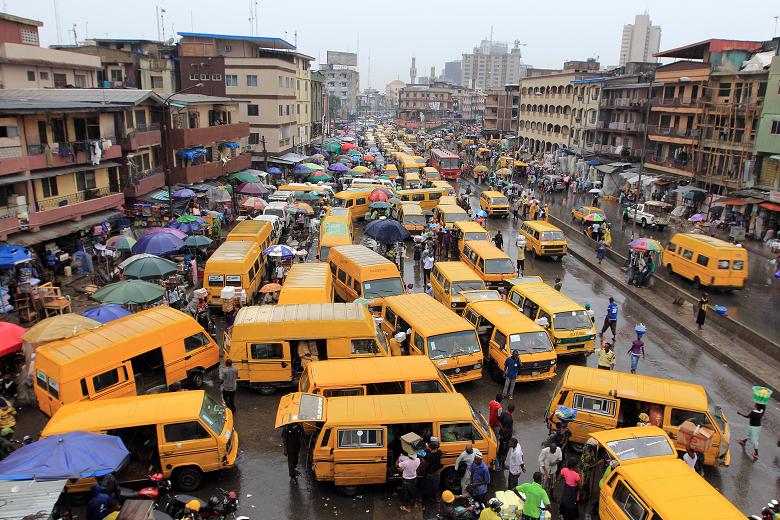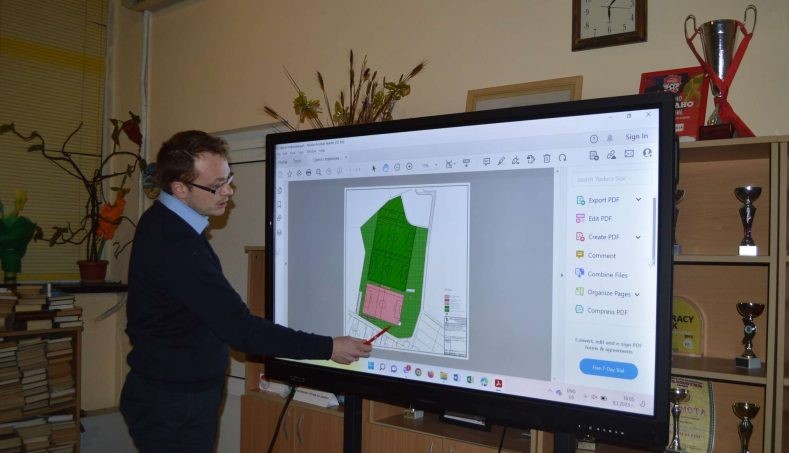Traffic congestion: Lagos will lose $21 billion per month by 2030 - Expert
A former Permanent Secretary of the Lagos State Ministry of Transport, Taiwo Salaam, has said that if traffic congestion in Nigeria's densely populated commercial capital, Lagos, were to continue unresolved until 2030, the city would lose up to $21 billion each month.
Mr. Salaam, now a senior lecturer and head of the department of transport technology and infrastructure at the Lagos State University (LASU) School of Transport and Logistics, Ojo, said this during the third round of distinguished lectures from the school.
He talked about the theme; "The Evolution of Transport, Congestion and Traffic Management in the Lagos Metropolis".
Mr. Salaam said that although traffic congestion is the most pervasive and intractable of the challenges facing urban transport in developing countries, especially in Lagos, population and size of the state are major contributors. to the challenge.
He said growing congestion in the state was threatening economic viability and worsening pollution and energy consumption.
StatisticsCiting statistics on the socio-economic consequences of traffic congestion in various cities around the world, the guest speaker said the rate at which the population of Lagos is growing has further complicated the city's traffic problem.< /p>
He said that Lagos is currently growing at 7-8% per year, adding that the population growth rate is 10 times faster than the cities of New York and Los Angeles in the United States of America .
He added that Lagos currently hosts 40% of the total number of vehicles registered in Nigeria.
READ ALSO:He said Lagos faces the challenges of developing a transport system that serves its citizens in terms of safety, accessibility, affordability, reliability, efficiency and comfort.
>
Mr. Salaam said; “The ability to do so is affected and influenced by factors such as population, finances, political environment, constitutional constraints and citizen attitudes, among others.
“Lagos’ economic growth among cities in Nigeria has placed it in an advantageous position for prosperity. of phenomenal growth.
“The city had an average of 224 vehicles per km in 2006 compared to a national average of 11 vehicles per km. Nigeria's national average in 2009 was estimated at 30 vehicles per km, Lagos had increased to 300. the city has over 1.4 million registered vehicles and around 2.5 million vehicles are in daily use, including weekends.
PollutionThe speaker said that transport pollutes the air more after industrial factories and that development leads to health problems and climate change at a higher cost.
He said the World Bank has reported that at least 30,000 people die each year from pollution in Nigeria.
"According to the bank, pollution is a huge problem in many cities around the world, including Lagos, which is known for its large population, high concentration of motor vehicles and industrial pollution, this further shows that an estimated 20 million people live in an area of less than 100 square kilometers in Lagos, leading to a suffocating mix of air pollution, single-use plastic pollution and solid waste on the streets of the city. city, causing respiratory problems, flooding and other illnesses among residents,” he said.
Automated guideway passage as a solutionOffering solutions to traffic congestion in the state, Mr Salaam, a certificate holder in transport management and chairman of the Chartered Institute of Transport Administration of Nigeria (CIOTA), suggested Automated Guideway Transit (AGT), a type of railways and cars/buses suspended in rope (cable cars) as a durable solution.
He said; "AGT is a modern train with the flexibility to penetrate the nooks and crannies of communities such as markets, residences, offices, seaports, airports, stations, hospitals, entertainment centers and many more. others.
"It has the capability of door-to-door services and can easily serve all designed light rail corridors by feeding and taking passengers to their door."
VC speaksFor her part, the university's vice-chancellor, Ibiyemi Olatunji-Bello, said he was...

A former Permanent Secretary of the Lagos State Ministry of Transport, Taiwo Salaam, has said that if traffic congestion in Nigeria's densely populated commercial capital, Lagos, were to continue unresolved until 2030, the city would lose up to $21 billion each month.
Mr. Salaam, now a senior lecturer and head of the department of transport technology and infrastructure at the Lagos State University (LASU) School of Transport and Logistics, Ojo, said this during the third round of distinguished lectures from the school.
He talked about the theme; "The Evolution of Transport, Congestion and Traffic Management in the Lagos Metropolis".
Mr. Salaam said that although traffic congestion is the most pervasive and intractable of the challenges facing urban transport in developing countries, especially in Lagos, population and size of the state are major contributors. to the challenge.
He said growing congestion in the state was threatening economic viability and worsening pollution and energy consumption.
StatisticsCiting statistics on the socio-economic consequences of traffic congestion in various cities around the world, the guest speaker said the rate at which the population of Lagos is growing has further complicated the city's traffic problem.< /p>
He said that Lagos is currently growing at 7-8% per year, adding that the population growth rate is 10 times faster than the cities of New York and Los Angeles in the United States of America .
He added that Lagos currently hosts 40% of the total number of vehicles registered in Nigeria.
READ ALSO:He said Lagos faces the challenges of developing a transport system that serves its citizens in terms of safety, accessibility, affordability, reliability, efficiency and comfort.
>
Mr. Salaam said; “The ability to do so is affected and influenced by factors such as population, finances, political environment, constitutional constraints and citizen attitudes, among others.
“Lagos’ economic growth among cities in Nigeria has placed it in an advantageous position for prosperity. of phenomenal growth.
“The city had an average of 224 vehicles per km in 2006 compared to a national average of 11 vehicles per km. Nigeria's national average in 2009 was estimated at 30 vehicles per km, Lagos had increased to 300. the city has over 1.4 million registered vehicles and around 2.5 million vehicles are in daily use, including weekends.
PollutionThe speaker said that transport pollutes the air more after industrial factories and that development leads to health problems and climate change at a higher cost.
He said the World Bank has reported that at least 30,000 people die each year from pollution in Nigeria.
"According to the bank, pollution is a huge problem in many cities around the world, including Lagos, which is known for its large population, high concentration of motor vehicles and industrial pollution, this further shows that an estimated 20 million people live in an area of less than 100 square kilometers in Lagos, leading to a suffocating mix of air pollution, single-use plastic pollution and solid waste on the streets of the city. city, causing respiratory problems, flooding and other illnesses among residents,” he said.
Automated guideway passage as a solutionOffering solutions to traffic congestion in the state, Mr Salaam, a certificate holder in transport management and chairman of the Chartered Institute of Transport Administration of Nigeria (CIOTA), suggested Automated Guideway Transit (AGT), a type of railways and cars/buses suspended in rope (cable cars) as a durable solution.
He said; "AGT is a modern train with the flexibility to penetrate the nooks and crannies of communities such as markets, residences, offices, seaports, airports, stations, hospitals, entertainment centers and many more. others.
"It has the capability of door-to-door services and can easily serve all designed light rail corridors by feeding and taking passengers to their door."
VC speaksFor her part, the university's vice-chancellor, Ibiyemi Olatunji-Bello, said he was...
What's Your Reaction?






















